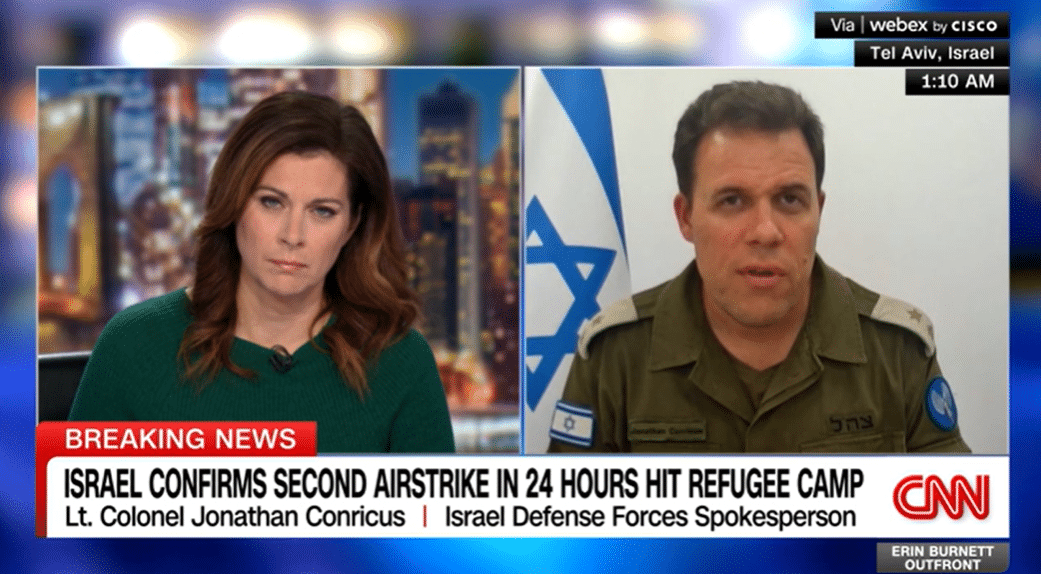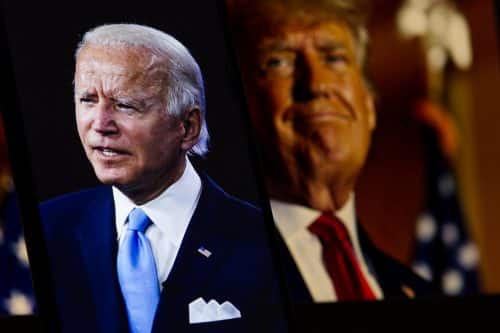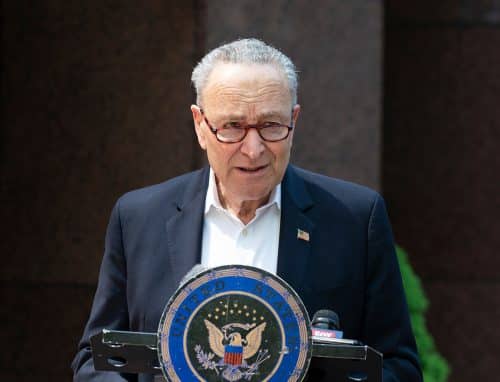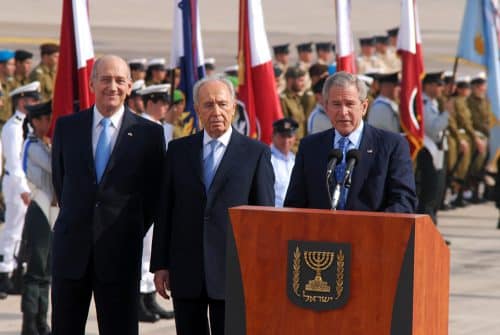If the face of Lieutenant Colonel (Res.) seems familiar to you, that is probably because you, too, watched the IDF Spokesman’s first broadcast from Shifaa Hospital during the Swords of Iron War. Although Conricus retired from the IDF in 2021, he mobilized for reserve military service immediately on the night of October 7 – even before receiving summons to enlist – and for almost three months he has substituted for the current spokesman, a conscript, during the night shifts, to let him catch some sleep. The nighttime hours, however, are prime time in the United States, so that is how he ended up doing a series of interviews with media outlets like BBC, CNN, Sky News, NBC, ABC News and so forth, where he had to field countless attacks, to refute a deluge of fake news, such as in the case where Israel stood accused, the night before President Biden’s visit, of bombing a hospital in the northern Gaza Strip, and was forced to prove that it had been an Islamic Jihad rocket that had hit the hospital.
After three months of reserve military service as IDF Spokesman for international media, IDSF member Lieutenant Colonel (Res.) Jonathan Conricus speaks of the challenges and dangers affecting the international legitimacy of Israel’s actions in its wars and what should be done in this respect.
“Assign intelligence resources to collect facts on the ground”
Right off the bat, Israel’s standing as far as the media and social media are concerned is problematic, to say the least. “Israel is playing on a playing field skewed against it. Purely quantitatively, there are many more ‘natural supporters’ for the Palestinian narrative – Arabs, people of Arab or Islamic parentage, etc. – than there are of ‘natural supporters’ for the Israeli narrative. Add to this that as a rule Israel is perceived to be the top dog and the Palestinians the underdog, where empathy quite naturally favors the underdog. Regardless of the fact that we are in the right, the tendency is to side with the underdog”.
Add to this weak starting position, the powerful forces currently active in the anti-Israeli camp. “There is a complex, multi-pronged system of delegitimizing agitation against Israel and against our very presence in the Middle East, which is being stoked and financed among others by Iran, the Palestinian Authority and the terrorist organizations themselves, such as Hamas and Hezbollah. This battle is being played out in the media, in legal forums, such as the Hague, and also around parliaments and Congresses. Whereas formerly our enemies attempted to destroy us militarily – in the pre-state years, and then in 1948, 1967 and 1973 – in recent decades the struggle has been diverted into terrorism and guerilla, besides legal warfare and economic and cultural isolation through the BDS and the likes. This is the playing field in which I am playing”.

From your experience, is the IDF managing to cope with these challenges?
“In this war I see a noticeable improvement in the way Israel has conducted itself vis-à-vis international media, particularly in comparison to the 2021 Operation Guardian of the Walls, where our conduct was disastrous. This improvement is thanks primarily to the wall-to-wall awareness of the importance of the media battle – from the Chief of Staff and Head of Intelligence down to the IDF Spokesman personnel themselves”.
How is the IDF’s attitude toward the media different?
“The realization that there is a need to assign intelligence resources to collect and document facts on the ground, recordings, prisoner interrogations etc. IDF Spokesman Daniel Hagari is attending to this personally. In the past, the IDF Spokesman would prioritize Israeli reporters for access to content – and let the rest fend for themselves. In the present battle, for the first time, I am seeing a consistent, methodic prioritizing of international media in order for it to provide coverage of the things that are important for us to show the world public. This comes not at the expense of the domestic audience, but if we uncovered a terror tunnel underneath Shifaa Hospital, the first media players brought in were BBC and Fox News”.
Room for improvement: More women spokespersons and strategic handling of TikTok
Shifaa Hospital was critical for the IDF in this respect, due to the need to prove to world media that Hamas was using hospitals, and specifically Shifaa Hospital, for its military purposes, in direct violation of international law. Therefore once the IDF subdued the location and cleared it, Conricus brought in the international media to the hospital to show them what had been found there, next to the MRI machines: weapons, explosives, computers, mobile phones, training materials etc.
But the compelling proof only came later, when the underground complex was discovered.
First of all we brought reporters there to witness for themselves, first-hand, Hamas’s undisputable military presence. Following that, when our forces uncovered the tunnel and the underground complex beneath the hospital, we were also able to back up with video imagery our allegation against Hamas, which contrary to its claims, was making extensive use of the hospital for its military purposes. Nobody is cutting us any slack, the standards applied to Israel are virtually unattainable, and it is a never-ending uphill battle, and we have got to steel ourselves and invest considerable resources in video and irrefutable evidence”.
Where is there room for improvement for Israel’s media presence?
“I think today we have plenty of eloquent spokespersons, but I would be glad to see more women speaking for the IDF. I also think we are facing a challenge from social media, mainly TikTok. I’ve seen figures and analyses, there is an insurmountable advantage for anti-Israeli propaganda, and apparently the algorithm prioritizes this content over other. One should take a strategic view of this, to understand how the algorithms work, and to move correctly in this arena to make it less prone to anti-Semitism, fake news and anti-Israel propaganda”.
“We must expose statements from staff in foreign campuses”
Beside external forces that impede the spokesman’s office’s work, Conricus highlights the damage inflicted to our outreach and legal effort by political players and other influential individuals – this has come to the fore in recent days especially against the backdrop of the deliberations in the court in the Hague. “Ministers and politicians are behaving crudely and irresponsibly, allowing themselves to make politically-motivated, self-adulating statements. They are receiving considerable negative attention around the world and are having a detrimental effect on our ability to explain ourselves. I think these statements should be dealt with more decisively”.

And how can Israel deal with the anti-Israeli climate in USA and European campuses?
“This problem has been around not from today, we have been seeing this process developing for years. I think Israel has not devoted the proper attention and resources to this issue and has allowed anti-Israeli organizations to make inroads unimpeded into the campuses of the most important universities in Europe and the United States. These are the institutions from which the people that are going to shape the policies of the next generation come, and what they are teaching there is, to say the least, problematic from Israel’s point of view. This is what has brought us to a situation where in a Congressional hearing for three presidents of the most important universities in the United States, we witnessed institutionalized anti-Semitism”.
Is Israel able to deal with this at all? These are broad cultural trends.
“Israel can’t prevent everything, there are deep mindset shifts here, but we have to be present in the conversation with the universities, to check the curricula, to expose lecturers’ utterances, including anti-Semitism and support for terrorism, and we must demand they be held accountable for their words. If a lecturer or student speaks in an anti-Semitic manner, he must be made to bear the consequences. For this we can also get help from civil society organizations and from donors, many of whom are Jewish, and we can make it clear to them exactly where their money is going. There’s an internal conversation about this in the United States, but Israel has to expose it and send speakers into these campuses”.
The importance of “Spokesman-Supporting Intelligence”
What is the main theme that guides you in your media appearances?
“As an official spokesman of the IDF, the fundamental asset is reliability. Reports have got to be correct and consistent. Besides that, a military information source is expected to provide facts, figures and data – and all of these have to be cross-checked and precise. As in any other spokesman’s office, there is a continual tension between the speed of our response and accuracy. If we release information quickly and it turns out to be inaccurate, this would be counterproductive. Another principle is, as we say, “Show, don’t tell”. The most effective materials are videos, aerial photographs, recordings etc., tangible materials that one cannot argue about. If I show a video of someone firing from inside an UNRWA compound – it can’t be compared to a spokesman standing and alleging that Hamas fired from inside an UNRWA compound. This is what we call ‘spokesman-supporting intelligence’”.
What else of importance should one know when advocating on Israel’s behalf abroad?
“One has to understand the culture and the beliefs of the people to whom you are trying to transmit your messages. For example, if I am being interviewed during the American thanksgiving period without making a reference to it, I’d be missing a point. In an interview I gave on thanksgiving morning, I told the anchor, ‘Today American families are gathering in their homes to celebrate, while Israeli families are shattered, evacuated from their homes, and we have 200 hostages. This is our reality. The audience can relate to that”.
Is it at all possible to influence world public opinion through rational explanations, or are these deeper, mainly emotional processes?
“IT’s true that the most effective way of influencing people is through their emotions, the human stories behind the facts, which can arouse empathy even among people who are not necessarily familiar with the details. But the State’s duty is first and foremost to provide the facts about the casualties, the hostages, and the situation on the ground underpinning these stories. For example, the foreign ministry decided from the outset to post awful images on its official accounts – of Israeli casualties – this is something that wasn’t done very often up until now, to show how civilians were hurt. It’s also possible to use South Africa’s ridiculous allegations against Israel – all one big lie – to put forward our position. These are absurd allegations – easy to refute, and to explain what Israel is doing to protect the lives of residents in Gaza”.
What can every Israeli individual do to help with outreach?
“The most basic thing is to retweet the contents that present the Israeli position on social media. Have you watched an IDF Spokesman clip, an IDSF clip, or a clip from any other Israeli spokesman? Click Like, share, respond – this way you’ll be signaling to the algorithms that this is valuable content, and this will help spread the word”.





